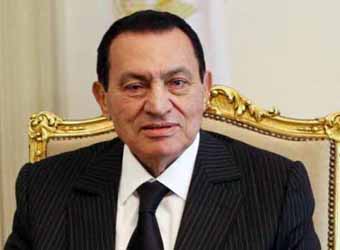Egypt’s former strongman Hosni Mubarak is now able to walk free after the Court of Cassation acquitted him on Thursday in his retrial on charges of killing protesters during the 25 January Revolution, a case which has been dubbed the trial of the century.
Today’s verdict is final and cannot be appealed.
The 88-year-old ousted president has been confined to Maadi Military Hospital for treatment since 2012.
In June 2012, Mubarak was sentenced by a criminal court to life in prison, 20 years in jail per Egyptian law, for his complicity in the murder of protestors during the 18-day January 2011 uprising that ended his 30-year autocratic rule.
However, in January 2013, the Cassation Court overturned Mubarak’s conviction and ordered a retrial.
The Cassation Court also upheld the acquittal of other defendants in the same case, including Mubarak’s last interior minister Habib El-Adly and four of his aides.
In November 2014, the criminal court retrying Mubarak acquitted the former president and all co-defendants of killing protesters, reasoning that the prosecution’s initial decision on 23 March, 2011 to charge Mubarak lacked the legal basis to bring a criminal case against him.
On Thursday, Mubarak’s defence lawyer Farid El-Deeb called on the court to acquit Mubarak, arguing that the criminal court acquitted El-Adly and his aides over the same charges leveled against Mubarak in 2014.
Since his downfall in 2011, the former President stood trial in a number of criminal cases on various charges, but received a final conviction only in one on corruption charges.
In January 2016, the Court of Cassation upheld a three-year prison sentence for Mubarak and his two sons for corruption in the case known as the presidential palaces lawsuit, for using public funds- appropriated for the maintenance of presidential palaces- to upgrade his private property.
At the time of the verdict in the case, Mubarak’s sons had already been behind bars for more than three years and, therefore, were eventually released.
The former autocrat ruled Egypt from 1981 until a popular uprising ousted him on 11 February, 2011.
Source: Ahram online


